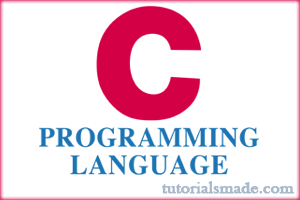In this post, we are going to write a C program to generate Multiplication table. Let’s see how to write it with a simple snippet first.
|
1 2 3 4 5 6 7 8 9 10 11 12 13 14 |
#include <stdio.h> int main() { int table_no = 7; int upto = 10; int i; for(i=1; i<=upto; ++i) { printf("%d * %d = %d\n", table_no, i, table_no*i); } return 0; } |
The above snippet will print the 7 times table. An output of the above script is:
|
1 2 3 4 5 6 7 8 9 10 |
7 * 1 = 7 7 * 2 = 14 7 * 3 = 21 7 * 4 = 28 7 * 5 = 35 7 * 6 = 42 7 * 7 = 49 7 * 8 = 56 7 * 9 = 63 7 * 10 = 70 |
Let’s write a complete C program to generate Multiplication table dynamically.
|
1 2 3 4 5 6 7 8 9 10 11 12 13 14 15 16 17 18 19 20 21 22 23 |
#include <stdio.h> int main() { int table_no; int upto; int i; //get the table_no printf("Multiplication table of: "); scanf("%d", &table_no); //get the upto value printf("Upto: "); scanf("%d", &upto); //lets loop till the value upto for(i=1; i<=upto; ++i) { //now print the multiplication table printf("%d * %d = %d\n", table_no, i, table_no*i); } return 0; } |
The output of the program will be:
|
1 2 3 4 5 6 7 8 9 10 11 12 13 14 15 16 17 |
Multiplication table of: 12 Upto: 15 12 * 1 = 12 12 * 2 = 24 12 * 3 = 36 12 * 4 = 48 12 * 5 = 60 12 * 6 = 72 12 * 7 = 84 12 * 8 = 96 12 * 9 = 108 12 * 10 = 120 12 * 11 = 132 12 * 12 = 144 12 * 13 = 156 12 * 14 = 168 12 * 15 = 180 |
I hope this would have helped you learn some C programming language.


